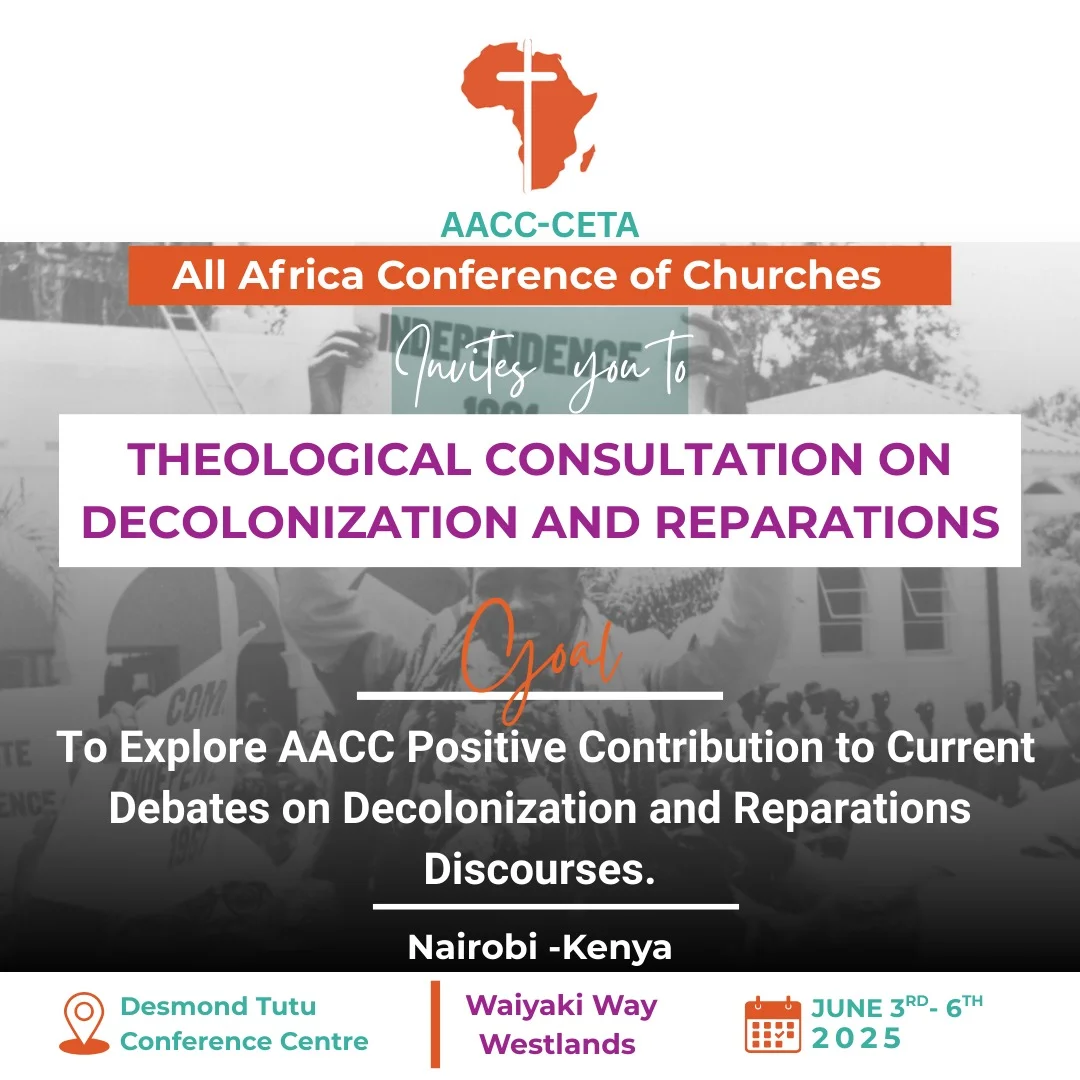Theological Consultation on Decolonization and Reparations
- 70 views
The notion of decolonization and/or decoloniality have raised questions among African churches as well as their ecumenical partners. For example, is the whole idea of decolonization or decoloniality an African agenda, driven by African voices and priorities? This crucial question underscores the need for this consultation. We must grapple with the complexities of decolonization, ensuring our approach is both authentically African and globally relevant, rooted in our faith and informed by our lived experiences.
The call for decolonization and reparations is gaining momentum globally, prompting a critical examination of the origins of the decolonization agenda, how deep it cuts into the African aspiration and how African churches can even start that conversation? The Church in its moral and spiritual leadership needs to discern on this crucial topic of the season. Reflecting further, could the decolonization agenda demand a critical and uncompromising examination of these historical injustices and their ongoing consequences? Does it look at dismantling oppressive systems and the creation of just and equitable alternatives? What alternative voice does the church or can the church bring the space – a voice that can have a transformative effect to the discussion on decolonization. Similarly, there is an issue of reparations.
The African Union has designated the theme of the year 2025 as: Justice for Africans and People of African Descent Through Reparations. The AACC has been part of the conversation. There are questions around what form should reparations take? How do we deal with apologies which have been made by several countries, mission agencies, other organizations? How should reparations be deemed sufficient? How does the theology of forgiveness affect this conversation? How should we handle the return of (some stolen, some gifted) African artifacts now in the West? Are churches really interested and keen on receiving these artifacts in archives of mission agencies? Where should they be returned to and kept?
The AACC, as a moral voice with significant presence across the continent, can contribute to this debate for healing, reconciliation, and reparative justice. This consultation seeks to explore this role in detail, for the African Churches’ duty to make a positive contribution to current debates on decolonization and reparations discourses.
Objectives
This consultation aims to achieve the following key objectives:
• To examine existing understanding of the notions of decolonization and reparations
and their implications from an African perspective.
• To facilitate broad-based theological reflection on decolonization and reparation
• To identify and analyze existing decolonization and reparation initiatives determining
best practices and approaches.
• To propose progressive orientation or discussion paper that could be adopted and
utilize by the AACC and its members in its engagement on global conversations on
decolonization and reparation.

